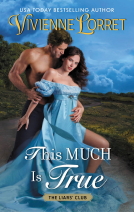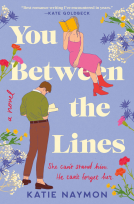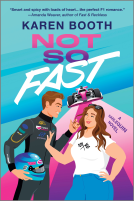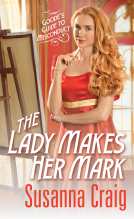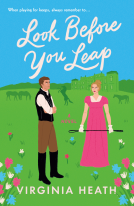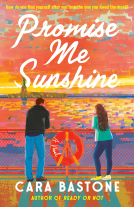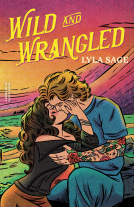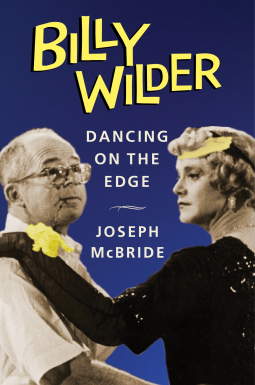
Billy Wilder
Dancing on the Edge
by Joseph McBride
This title was previously available on NetGalley and is now archived.
Send NetGalley books directly to your Kindle or Kindle app
1
To read on a Kindle or Kindle app, please add kindle@netgalley.com as an approved email address to receive files in your Amazon account. Click here for step-by-step instructions.
2
Also find your Kindle email address within your Amazon account, and enter it here.
Pub Date Oct 26 2021 | Archive Date Jan 26 2022
Talking about this book? Use #BillyWilder #NetGalley. More hashtag tips!
Description
In this critical study, Joseph McBride offers new ways to understand Wilder's work, stretching from his days as a reporter and screenwriter in Europe to his distinguished as well as forgotten films as a Hollywood writer and his celebrated work as a writer-director. In contrast to the widespread view of Wilder as a hardened cynic, McBride reveals him to be a disappointed romantic. Wilder's experiences as an exile led him to mask his sensitivity beneath a veneer of wisecracking that made him a celebrated caustic wit. Amid the satirical barbs and exposure of social hypocrisies, Wilder’s films are marked by intense compassion and a profound understanding of the human condition.
Mixing biographical insight with in-depth analysis of films from throughout Wilder's career as a screenwriter and director of comedy and drama, and drawing on McBride's interviews with the director and his collaborators, this book casts new light on the full range of Wilder's rich, complex, and distinctive vision.
Advance Praise
"Only Joseph McBride could have given us Billy Wilder in such fullness, as he’s done previously with Lubitsch, Ford and other masters. The breadth of research is staggering, yet it is always placed at the service of McBride’s free ruminative style, unbound by dutiful chronological study—instead, we have a sensibility, and a conversation. By placing the production histories and legacies of collaboration into the widest possible historical frame, McBride reanimates Wilder’s life and art, returning us to the masterpieces to see them with fresh eyes, and hungry to discover the films we’ve missed."
--Jonathan Lethem, author of The Ecstasy of Influence: Nonfictions, Etc.
Available Editions
| EDITION | Other Format |
| ISBN | 9780231201469 |
| PRICE | $40.00 (USD) |
Featured Reviews
 Susan J, Reviewer
Susan J, Reviewer
This is an excellent study cum biography of Billy Wilder that delves deeply into the origins behind his films. As Jews, Billy’s family roamed from country to country trying to find a place where they could live in peace. This life without roots would increase when Billy became first a reporter and then a writer and finally a filmmaker. His experience as the outsider trying to survive in a hostile world would permeate his work and colour so many of his scripts and films.
He had no delusion when Hitler came to power. He knew to stay was to die. He tried but failed to convince his family to come with him to the US and their fates haunted him throughout his life. Often known for his comedy movies, even those had an element of pathos. He was a genius but his quest for perfection made him a hard taskmaster on himself and those who worked with him. But no one can deny the importance of the body of work he left behind.
The book is a combination of biography with deep analysis of his movies. It is fascinating and enlightening. It will be appreciated by film historians and students of the art form. Long and in depth, this is not a book to read piecemeal. Four stars and two paws up.
How did Wilder do it? This and other questions are answered in McBride’s biography of the roaming reporter turned Academy Award winning screenwriter and director, Billy Wilder.
As I saw the cover of Joseph McBride’s biography Billy Wilder Dancing on the Edge (2021), this biography immediately got my attention. This book sporting an iconic cover photograph of Billy Wilder tango dancing with Jack Lemmon in full costume as Daphne (Jerry) – the screenwriter, producer and director and this actor respectively – was taken from behind the scenes of the celebrated film, Some Like It Hot (1959). This photograph I later found perfectly illustrates many of the themes explored in this book.
McBride is a passionate, empathetic and understanding writer for this biography. It is clear that he has an encyclopedic knowledge of Wilder and his life in film, journalism and art. McBride’s enthusiasm for his subject jumps from every page and he is a credible advocate for this filmmaker. Each of the films discussed includes much more than a vivid plot description and I feel you can easily use this book as a viewing companion. This as you soak up Wilder’s lengthy career behind the screen as an international screenwriter and director. Or you can learn more about his short but influential journalistic career.
McBride shows his love for Wilder, the man and his journalistic works and his movies in this comprehensive biography. His adoration never wavers throughout his more than 559 autobiographical pages. These pages are laced with relevant historical facts, quotes and anecdotes from this time and from his personal interviews with Wilder. The book is split into three sections with a few chapters for each. These are enigmatically titled, The Phantoms of the Past, I Was Not in the Right Country and Dancing on the Edge and together they give a rounded and complete picture of Wilder.
The final over 100 pages of this book include outlines of Wilder’s full filmography as an international filmmaker. This is followed by a lengthy description of the notes on the sources used to write this book. Then the writer’s acknowledgements and influences complete this book. The length of this part of this book easily encapsulates McBride’s strong passion while researching his biographical subject.
This biography outlines Wilder’s life, from he was born in Sucha (Now Sucha Beskidzka) in Austro-Hungary (now Poland) to Jewish parents in June 1922 to his passing in 2002. His mother – who had lived in New York before marrying Wilder’s father – was credited as giving young Samuel, his American themed nickname Billie. This nickname was after “Buffalo” Bill Cody, an American showman and used throughout his Austrian and German journalism career.
However, Wilder changed it to the more American masculine version, Billy in 1937 after he immigrated to America. Wilder had a brother Wilhelm – who also moved to America – and Wilhelm’s life, relationship with Wilder and his movies are looked at briefly in this biography.
After he turned 10 years old, young Wilder and his Jewish family then moved to the then Polish capital, Krakow and from there to Vienna. At that time Vienna was strongly anti-Semitic. Wilder was seen as a “street punk” and attended a school for problem youth. McBride tells how this school was situated opposite a hotel where prostitutes often took their clients. McBride suggests this fact may have served as inspiration for Wilder’s romantic comedy Irma la Douce (1963).
Wilder instead of going to law school decided on journalism as a career. He worked initially on creating crosswords, and he enjoyed this creative use of wordplay. Later he wrote pieces on notable members of Viennese society and he claimed to have almost interviewed Sigmund Freud.
He moved to Berlin in 1926, as Paul Whiteman a Jazz bandleader employed him for a Public Relations post – after Wilder interviewed him as a journalist – and there he worked as a journalist during the Weimar Republic years. During his time in Berlin, Wilder developed a number of screenplays for a number of German films. Wilder recalls during this time he brushed paths with Hitler, at a film showing.
After leaving Berlin for France in 1933 – as Hitler became more powerful, – Wilder moved temporarily to Paris for nine months. There he directed the French film Mauvaise Graine (1934) and shared lodgings with Peter Lorre. He was offered a contract with Columbia Pictures and moved to America. He learned English by listening to the radio, songs and soap operas (as well as dating girls). He was always conscious of his exile status and a German accent. He was given American citizenship in 1940.
During his career in Hollywood, Wilder collaborated with screenwriters, Charles Brackett and Iz A L Diamond. He directed films and it appears this transition was as he was disgruntled after a key scene was cut from a movie. He also collaborated with his idol, and close friend, the filmmaker, Lubitsch. McBride writes short biographies on each of Wilder’s collaborators and looks in more detail at their joint films and their relationship with Wilder. These descriptions use a wide range of sources from personal diaries to other writers’ Billy Wilder’s biographies to support his work.
Wilder was seen to be famous for many films over these decades such as Sunset Boulevard (1950), The Apartment (1960) and The Private Life of Sherlock Holmes (1970). McBride charts both Wilder’s successful films and his flops in great detail. In doing this, McBride uses an extensive list of references. He adds interesting stories told about the casting and production of these films.
McBride explains how the film’s themes are explored with examples of pertinent characters or relevant scenes to add to his arguments. McBride adds wonderful quotes relating to reviews, cast members and his writing partners in these illuminating chapters. Wilder rounds up his biography by looking at Wilder’s work as an artist after he retired after Diamond passed away.
In his book, McBride shares that he intended to focus on the influence of Wilder’s “phantoms of the past” on his life and works. He also set out to give a full picture of his career as a journalist and international filmmaker who was not afraid to return to his roots, and grounded many of his films in satire or loosely based on his life and journalistic experiences.
McBride explains how many of Wilder’s screenplays explored Wilder’s constant feelings of being an exile (as Wilder lived in five different countries during his lifetime). McBride also suggested Wilder felt exiled in his later career while living in Hollywood, where his work was unappreciated in Hollywood and was seen as “old fashioned”. It seems Wilder was conscious of being known as an “Auslandich” or foreigner, and this was feeling never left him even after he was given American citizenship.
In his book, McBride sets out to explore how the “phantoms of his past” are portrayed in Wilder’s film screenplays and his writing as a journalist. These he believes are seen in his films in “troubling and obscure currents moving under its surface”. In exploring these “phantoms” McBride fulfils this task with flair and panache.
You will find after reading his arguments with vivid descriptions of his films you will certainly see many of his films differently. In looking at Wilder’s life it seems this man with his mother’s gift for storytelling added many of his life experiences were satirised or remembered in his movies. For example, The Emperor Waltz (1948) was often believed to be a veiled piece on the Holocaust. Yet this was denied.
The book also aimed and succeeded in telling so much more than Wilder’s Hollywood career. It is also an illuminating guide to Wilder’s work as a journalist in Austria and Germany. This part of Wilder’s career has been rarely discussed in English until now. McBride argues studying Wilder’s role as a journalist was essential, as from this career Wilder made a natural step to screenwriting.
Wilder initially wrote for the Austrian culture magazine, The Stage in Vienna. McBride analyses Wilder’s pertinent work from this time. He finds many of his reported stories were later reflected in his screenplays. This including after he wrote a profile of an older actress with a fading career, McBride noted shades of this woman’s personality were seen in Gloria Swanson’s Norma Desmond in Sunset Boulevard.
Interestingly during this time, Wilder also masqueraded himself, as he worked for a short time using a pseudonym as a woman journalist. He had his own column providing makeup and fashion tips. McBride also looks in-depth at Wilder’s most prolific piece telling of his work as a “taxi dancer” in between jobs. This published piece blending fact and fiction, McBride believes was instrumental in starting Wilder’s screenwriting career.
McBride also explores Wilder’s early film career as an international filmmaker. Wilder wrote screenplays for a wide range of films, in France, Germany and the United States. These films plots are explained, reviewed and analysed by McBride with compelling writing that will delight any film lover. McBride believes that as a European Wilder brought a “visual elegance” to his movies and this was seen in his “clear and direct plots”.
When writing about his subject’s career, McBride writes on the plot. themes and analyses his Wider’s contribution as a screenwriter and director. The author argues that many of his feelings at the time were satirised in the plot. This appears at its most extreme in his penultimate movie, Fedora (1978). McBride writes a thorough account of the making of this movie and how it clashed with Wilder’s vision. This satire indirectly tells how Wilder’s career was seen as old fashioned after the 1970s.
McBride is a passionate advocate for Wilder, and he adds his support wholeheartedly as he explores many of the themes that are associated with Wilder. He explores cynicism and romanticism as related to this man. He argues that Wilder was a romantic and this is backed up with relevant quotes and examples from his movies. In both of these qualities, McBride argues with credibility and a firm knowledge of his subject as he defends Wilder’s work as he answers the criticisms from Wilder’s critics. He also is a strong lover of Wilder’s later work, and he convinces you easily to check out those later films.
This author also looks at films that Wilder was keen to make but didn’t. This list including Schindler’s List (1994). It seems Wilder was passionate about filming this movie as his tribute to his family who was lost in the Holocaust. He suggested a collaboration with Spielberg and this sadly didn’t happen. However, it’s reported that he felt it was fantastically made and it was one of his favourite films.
McBride argues Wilder’s more personal film work was done with a Diamond of a collaborator. And the same jewel can describe this biographer. To explain, McBride adds a personal touch, as he shares relevant material from interviews from times that he met Billy Wilder. It’s clear from these interviews that he had a wonderful trusting rapport with Wilder, and in including these quotes peppered throughout the book McBride adds that Wilder touch.
This adds Wilder’s presence, and a slight autobiographical slant to McBride’s book, and in doing so makes this a definitive book on Wilder. I am sure that in reading this empathetic book, with chapters with his own words from his interviews with McBride, Wilder may have seen this book as a catharsis, albeit by proxy. This book, like Wilder’s films, excised Wilder’s phantoms of the past and informed us of the versatility of his International filmography.
A comprehensive and interesting breakdown of Wilder's filmography and career. As a fan of his work, I found this an enjoyable and informative read.
The in-depth analysis of his films was really great.
Thank you to NetGalley and the publisher for this ARC in exchange for an honest review.
This was an insight into an interesting time within an even more interesting industry. Perhaps one more for the enthusiast, there is so much information here based on what has clearly been a labour of love in research terms. But you don’t have to be an aficionado to enjoy it.
Billy Wilder by Joseph McBride is a much researched and fact-jammed account of this genius's long film making career and life.
Any fan would love to dig right into this book and learn new things.
Thanks for the ARC NetGalley
 Bernd F, Reviewer
Bernd F, Reviewer
Well, this is certainly a hefty tome (more than 500 pages) and only for people who are familiar with Wilder´s movies. It´s not a biography (although you get to know a lot about Wilder´s life) but McBride tries to point out how much Wilder´s life influenced his movies.
McBride refers a lot to other books or studies about Wilder and takes a closer look at Wilder´s early movies in Germany as well as the movies he only wrote the scripts for. McBride takes a stand for most of Wilder´s later works like ´Fedora´ or ´The Private Life Of Sherlock Holmes´ but can not find anything redeemable about his last movie ´Buddy Buddy´.
Some of McBride´s conclusions might not hold water - Wilder had a bad experience with a swimming pool once which is reflected in the opening scene of "Sunset Boulevard" - but overall he makes well thought-out cases.
Of course McBride finds a lot of parallels between Wilder and his idol Ernst Lubitsch but also some cases where he went wrong trying to copy his style. But he is firmly of the opinion that Wilder is as much as a romantic as a cynic, a term which is often asscociated with him.
Despite its length, it was a breezy read but is only recommended for serious Wilder fans.
Netgalley provided me with a copy of this book for which I am very grateful.
This is an exhaustively detailed delve into the life, movies and influences of the highly influential director and screenwriter Billy Wilder, best known for classic movies such as Some Like It Hot, Sunset Boulevard and The Apartment. This is a book for hardcore Wilder fans, fans who have likely read a bunch of other books about the director. While it starts off fairly orthodox with a look at Billy's childhood - a horrific one in which most of his family, including his mother, was killed by Nazis - it then meanders in many different directions, jumps back and forth through time, and goes wherever the author's musings take us. This is an academic book - which I should have realized given that it's published by a university press, so if you're looking mostly for gossip about Marilyn Monroe or Gloria Swanson, or a typical Hollywood biography, this isn't it.
That said, if you ARE a huge Wilder fan, you can't do without this book. Anything and everything you ever need to know not only about the director, but his main influences - Lubitch and Hawks. I personally would have preferred a more linear, more typical Hollywood story, but that's on me. This was a remarkable journey through Wilder's cinematic life and the emotional and mental state that influenced his decisions and vision. It's a fact that we don't see filmmaking like this anymore. It's a fact that any director/screenwriter worth his or her salt has been influenced by Wilder. And many of his movies stand up well today. Can anyone forget the last line in Some Like It Hot? For a director who was constantly being accused of being "too cynical" (ie too "realistic") this last immortal line is anything but - it seems to effortlessly predict progressive social mores. Imagine if the rich old man had looked aghast at Jack Lemmon. We may not be watching this marvelous movie today.
 Alys M, Reviewer
Alys M, Reviewer
A phenomenal look at the life, times, and work of one of film's most brilliant voices. Joseph McBride has crafted a must-have for any classic film fan's library!
 Susan A, Reviewer
Susan A, Reviewer
Billy Wilder was one of the best directors of his time. Sunset Boulevard, Some Like it Hot, Sunset Boulevard, Ball of Fire, Sabrina, and many more.
This is a fascinating critical biography of a great director. We get not only the man but the pictures. It'a must read.

